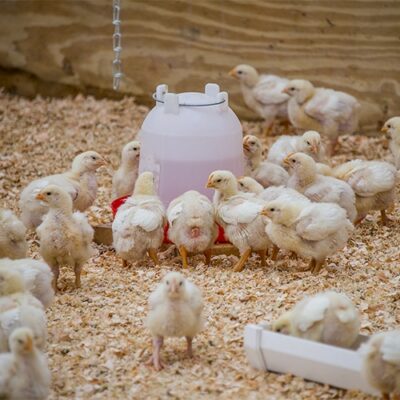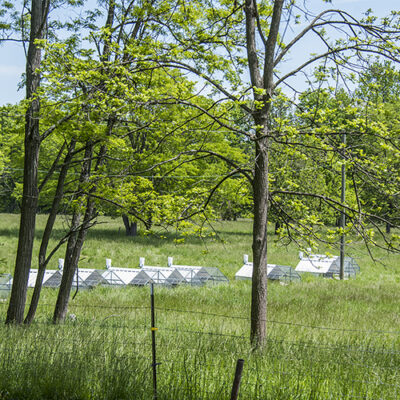Raised on Pasture
Our Generative approach to raising chickens improves the soil and the quality of forage for our other animals. Outdoors on pasture, the chickens have a high quality of life, able to express their natural behaviors like scratching and pecking, eating their fill of bugs, grasses, and clover, to our mutual benefit.
Chicken available year round
Check our product availability to see what we currently have in stock.
The Greenacres Difference
- Outdoors as early as possible, protected from predators
- Moved often to fresh grass
- Fed locally-sourced, non-GMO, soy-free feed
- No unnecessary antibiotics
- Low stress handling
- Staff who love our animals
- Certified Humane Guidelines used in production planning
- Moved daily to fresh forage
- Manure fertilizes and improves our soil, providing nutrients to the grass
- Healthy soil sequesters carbon, holds rainwater
- Raised with access to fresh forages, grains, and a varied diet
- Given ample space to roam, which enhances their muscle development and meat quality
- A slower growth process contributes to firmer, more flavorful meat
The Greenacres Difference
- Outdoor as early as possible, protected from predators
- Moved often to fresh grass
- Fed locally-sourced, non-GMO, soy-free feed
- No unnecessary antibiotics
- Low stress handling
- Staff who love our animals
- Certified Humane Guidelines used in production planning
- Moved daily to fresh forage
- Manure fertilizes and improves our soil, providing nutrients for the grasses
- Healthy soil sequesters carbon, holds rainwater
- Raised with access to fresh forages, grains, and a varied diet
- Given ample space to roam, which enhances their muscle development and meat quality
- A slower growth process contributes to firmer, more flavorful meat

Care From the Beginning
Baby chicks require very warm temperatures for the first 2-3 weeks of life, which we provide in an indoor environment known as a brooder. Once the chicks are big enough to be outdoors, they are moved into custom fabricated portable housing we call ‘chicken tractors’. The chicken tractors protect the birds from predators, and are moved to fresh grass every day. When they move, the very first thing we see the chickens do is eat the tender clover and grasses. The birds “work” for us by spreading apart cow manure and eating fly larvae, fertilizing the freshly grazed pastures with their nitrogen-rich manure, and scratching to help break up and reintroduce thatch into the soil.
Chickens Raised Outdoors
Most chickens spend their lives in a large warehouse-style setting – a highly controlled environment where the birds do not have exposure to natural light and have thousands of birds in each barn. Poultry production outdoors on pasture is good for the birds, the farm staff, and our environment.

